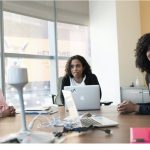Starlink, the satellite Internet provider backed by SpaceX, has officially launched its services in Botswana and Ghana. This expansion brings high-speed, low-latency Internet access to remote areas in these African countries.
The company announced the launch on X, confirming that its services are now fully operational in both nations. In Ghana, the launch follows the National Communications Authority’s (NCA) announcement that Starlink had completed all necessary administrative and licensing procedures. The NCA had approved Starlink’s application to offer satellite broadband services in April.
For Ghanaian users, Starlink’s hardware is priced at 5,390 Ghanaian Cedi (approximately US$344.40), with a monthly subscription fee of GHS770 (US$49.20). The company offers a 30-day trial without contracts or data caps, estimating a two-week shipping time for hardware.
Starlink’s entry into Botswana comes three months after receiving a license in the country. Initially, the Botswana Communications Regulatory Authority (BOCRA) rejected Starlink’s license application in February 2024. However, a meeting between Starlink executives and Botswana President Mokgweetsi Masisi in Dallas, Texas, in early May expedited the process.
In Botswana, the hardware cost is set at 4,820 Botswanan Pula (US$363.66), with a monthly subscription fee of BWP688 (US$51.91). Similar to Ghana, Starlink offers a 30-day trial and estimates a two-week shipping time for hardware.
With these additions, Starlink has expanded its presence in Africa. The service is now active in several countries across the continent, including Benin, Nigeria, Rwanda, Malawi, Mozambique, Zambia, Kenya, Madagascar, Sierra Leone, South Sudan, and Eswatini.
Starlink’s expansion in Africa represents a significant step in bridging the digital divide in remote and underserved areas. The satellite-based Internet service offers an alternative to traditional terrestrial networks, which often struggle to reach rural or geographically challenging locations.
The company’s low-Earth orbit satellite constellation aims to provide global coverage, offering high-speed Internet access in areas where traditional infrastructure is limited or non-existent. This technology has the potential to revolutionize Internet connectivity in Africa, where many regions still lack reliable broadband access.
Starlink’s entry into these markets could have far-reaching implications for education, healthcare, and economic development. Improved Internet access can facilitate remote learning, telemedicine, and e-commerce opportunities in previously underserved communities.
However, the service’s pricing may present a challenge in some African markets, where affordability remains a key issue in Internet adoption. The hardware and subscription costs, while competitive in developed markets, may be prohibitive for many potential users in Africa.
As Starlink continues its expansion across the continent, it will likely face competition from other satellite Internet providers and traditional telecoms. This competition could potentially drive innovation and lower prices, benefiting consumers in the long run.
The launch of Starlink in Botswana and Ghana marks another milestone in the company’s global expansion strategy. It also highlights the growing importance of satellite technology in addressing global Internet connectivity challenges, particularly in regions where traditional infrastructure development has been slow or difficult.
 We just launched our WhatsApp channel. Want to get the latest news from the Tech in Africa?
We just launched our WhatsApp channel. Want to get the latest news from the Tech in Africa?



